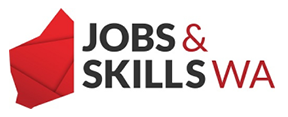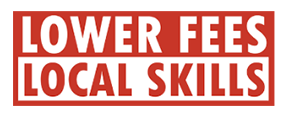With RPL we assess your competency based on formal, non-formal,
informal learning or direct work experience based on the required skills of the
course.
We use CT where you’ve completed units of study at another TAFE College
or Registered Training Organisation that meet the requirements of another course. We
grant credit according to the Certification, Issuing, and Recognition of
Qualifications and Statements of Attainment. Assessing a CT is free.
If you’re eligible for RPL or CT you may be able to complete the course
in a shorter duration with reduction to total course fees. Check
your eligibility with us.
What is a L – Portfolio?
L – Portfolio is a collection of work, skills and interests (evidence)
in an electronic format that showcases learning and experience over time.
When you think about your L-Portfolio and the types of evidence that it
contains, it is important to think carefully about its purpose and intended
audience.
Your L-Portfolio may contain all or some of the following:
- Files of various formats (text, pictures, video, etc.)
- Evidence related to courses taken, programs of study, etc.
- Writing samples (which might include several drafts to show development and
improvement)
- Projects prepared for class or extracurricular activities
- Evidence of creativity and performance
- Evidence of extracurricular or co-curricular activities, including examples of
leadership
- Evaluations, analysis and recommendations
Uses of L-Portfolio
Recognition of Prior Learning application:
Our RPL tool is in the form of an L-Portfolio, and allows students to
put on record all their life experiences, interests and skills. Not only will their
academic achievement be listed out, but also any life experiences that could
potentially be taken into account for extra credit as Recognition of Prior Learning.
For instance, an individual who has taken care of his or her bedridden parent has
already gained valuable caregiver experience, which could be chalked up against
practical expertise and added to their resume.
This L-Portfolio could be sent to employers when applying for work, to
universities while applying for extra credits through RPL, or in any other ways to
market their expertise.
Showcase/Professional L Portfolios
These L-Portfolios are used as a way to demonstrate (showcase) the
highlights of a student’s academic and professional career.
Learning Portfolios
These portfolios are typically created by a student as part of a course
as a way to demonstrate learning and the learning process. These portfolios are
often shared with other students to elicit peer feedback. Learning portfolios
support the idea of formative feedback as an essential part of the learning process.
















